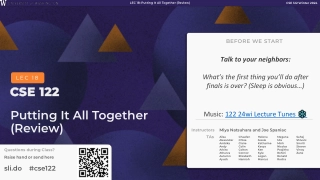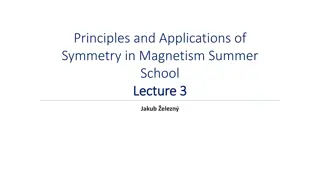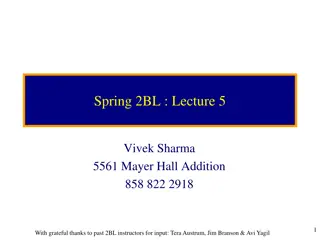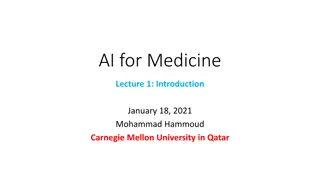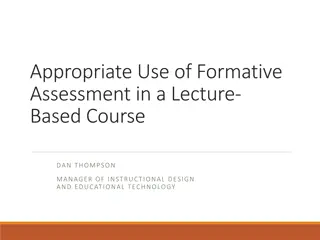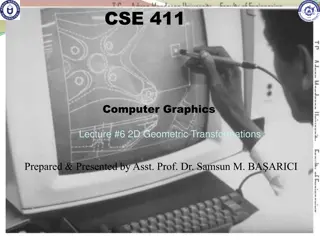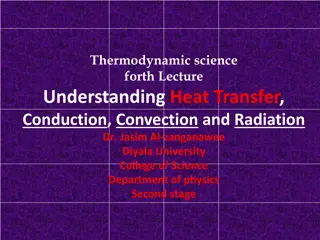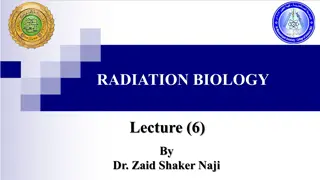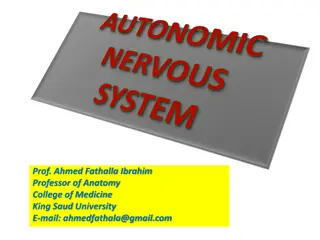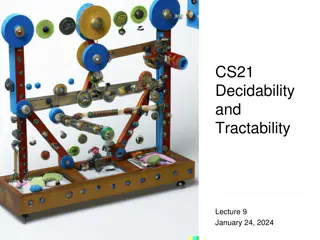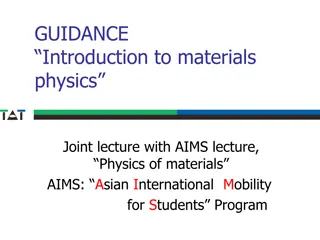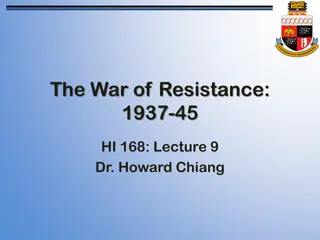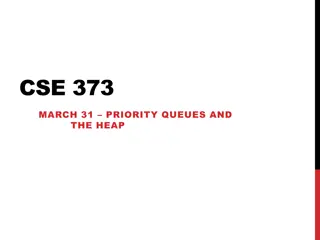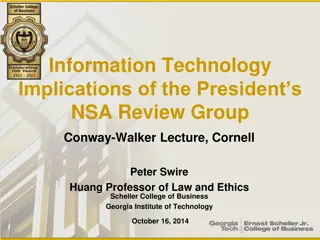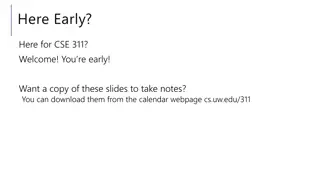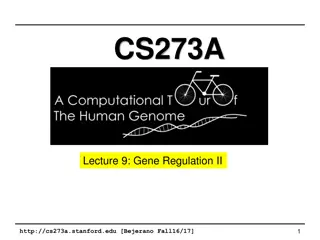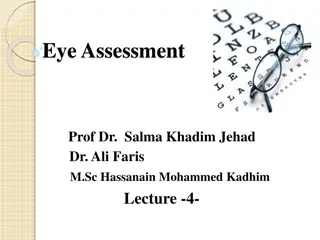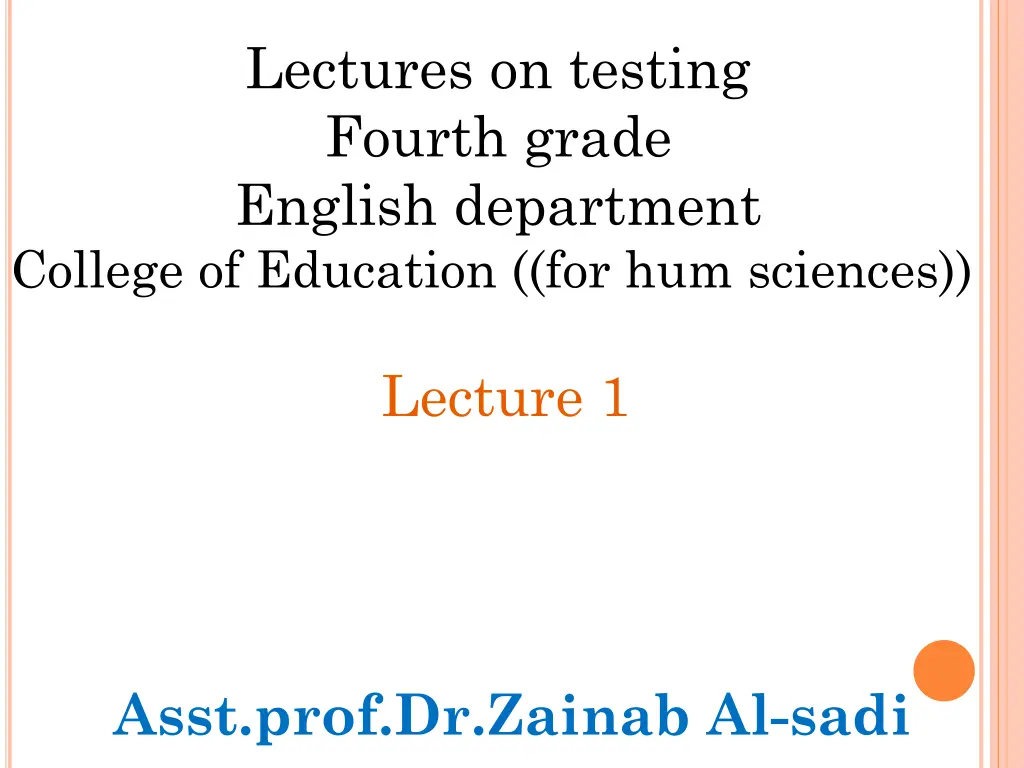
Understanding Evaluation, Assessment, and Testing in Education
Learn the key differences among Evaluation, Assessment, and Testing in education, including the concepts, processes, and importance of each. Gain insights into the systematic gathering of information for decision-making, the measurement of learner achievement, and the evaluation of overall program success.
Download Presentation

Please find below an Image/Link to download the presentation.
The content on the website is provided AS IS for your information and personal use only. It may not be sold, licensed, or shared on other websites without obtaining consent from the author. If you encounter any issues during the download, it is possible that the publisher has removed the file from their server.
You are allowed to download the files provided on this website for personal or commercial use, subject to the condition that they are used lawfully. All files are the property of their respective owners.
The content on the website is provided AS IS for your information and personal use only. It may not be sold, licensed, or shared on other websites without obtaining consent from the author.
E N D
Presentation Transcript
Lectures on testing Fourth grade English department College of Education ((for hum sciences)) Lecture 1 Asst.prof.Dr.Zainab Al-sadi
The first lecture 1- The differences among Evaluation, testing and assessment It is necessary to clarify The main difference among Three main concepts : Evaluation, assessment and testing Evaluation: is The systematic gathering of information For The purpose of making decision, so, it includes two main components : information witch is either quantitative ((measurement , test)) or qualitative ((non-measurement , rating scales)) and decision. this means that evaluation is all - inclusive and is the widest basis for collecting information in education .This conceptualized as broader in scope and concerned with the overall program.
It involves looking at all factors that influence the learning process ,i- e syllabus objectives, course design and materials . Evaluation is also a dynamic process. Evaluation process is not necessarily sequential, it can be seen as a cyclic process including five phases : 1. Test 2. Measurement 3. Assessment 4. Evaluation 5. Feed back
It is a process of delineating , obtain and providing useful information for judging decision alternatives. In a summary, we can say that evaluation is a process of looking back in order to look a head . By eliminating deficiency and by making necessary correction, expected functions of assessment. Testing : It is the use of tests or practice of their use, development, evaluation, ... etc. It is part of assessment and it measure learner achievement. Test: It is procedure, designed to elicit certain behavior from which one can make inferences about certain characteristics of individual. A test, then, is a measurement instrument designed to elicit a specific sample of an individuals behavior. What distinguishes a test from other types of measurement is that it is designed to obtain a specific ample of behavior that the test user can interpret as evidence of the abilities which are of interest.
Assessment: It is part of evaluation because it is concerned with the student and with what the student does. It is an umbrella term for all types of measures used to evaluate student progress. It is often used interchangeably with testing. It is related to the learner and his/her achievement. Assessment : is the preliminary phase in the process of evaluation. It is the gathering of all important and accurate information of student's progress. So, it is a process of professional judgment.
Assessment can improve cognitive ability and enhance self-esteem. It is worthing to mention that with the help of assessment and evaluation. Teachers find out: 1- What students are learning. 2- How they are progressing and 3- How teachers can make improvement for student's future development.

